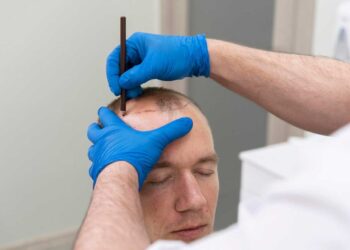If you or a loved one has been the victim of a medical error, you may be feeling overwhelmed and uncertain of what to do next. You are not alone. Medical errors are the third leading cause of death in the United States, accounting for more than 250,000 deaths each year. But that doesn’t mean you have to suffer in silence. There are steps you can take to protect your rights and get the compensation you deserve. Here is some expert lawyer advice on what you should do in case of medical errors.
1. Gather Evidence
If you suspect that you or a loved one has been the victim of a medical error, it’s important to gather as much evidence as possible. This may include medical records, bills, and documentation of any previous injuries or illnesses. If you have photos or videos of the incident, these can also be helpful. If you have spoken to any witnesses, get their contact information so they can be interviewed by your attorney. You’ll want an experienced attorney, such as the ones from Thomas Law Offices to guide your case. For example, if you were involved in a car accident, get the contact information of any witnesses who saw the accident occur. Additionally, if you have spoken to any insurance companies, get copies of any correspondence.
2. Contact an Attorney
It’s important to contact an attorney as soon as possible after a medical error occurs. An experienced attorney will be able to review your case and determine if you have a valid claim. They can also help you gather evidence and build a strong case. Most importantly, an attorney will fight for your rights and ensure that you receive the compensation you deserve. To find a reputable attorney, you should ask for referrals from friends, family, or other professionals you trust. You can also do an online search for attorneys who specialize in medical malpractice cases. For instance, if you are in Georgia, you might want to consider reaching out to an Atlanta medical malpractice lawyer for their local expertise and guidance. These professionals can be proficient in the complexities of medical malpractice law and can provide support throughout the legal process. Additionally, you can contact your state’s bar association for a list of qualified attorneys in your area.
3. File a Complaint
If you believe you have been the victim of a medical error, you can file a complaint with the U.S. Department of Health and Human Services Office for Civil Rights. This office investigates complaints of healthcare discrimination and violations of patient rights. They will review your complaint and determine if an investigation is warranted. Filing a complaint involves providing detailed information about the incident, so it’s important to have all of your documentation in order. For example, if you are filing a complaint about a hospital, you will need to provide the name and address of the facility, as well as the names of any individuals involved.
4. Speak to the Media
If you want to raise awareness about medical errors, you can speak to the media. This can be a powerful way to spread the word and help prevent other people from being harmed. However, it’s important to speak with an attorney before talking to the media, as they can help you craft a message that will protect your rights and avoid any legal problems. And, if you really want to make a difference, you can get involved in advocacy work. There are many organizations that focus on patient safety and medical errors. By joining one of these groups, you can help raise awareness and fight for change.
You can also participate in activities such as letter-writing campaigns and speaking out at public forums. Additionally, you can contact your state representatives and let them know about your experience with medical errors. By taking action, you can help prevent other people from being harmed and make the healthcare system safer for everyone.
5. Join a Support Group
There are many support groups available for people who have been affected by medical errors. These groups can provide emotional support and practical advice on what to do next. They can also be a great way to connect with others who have been through a similar experience. Additionally, many support groups offer resources and information on medical errors and patient safety. Support groups offer many benefits, including:
- Emotional support: When you join a support group, you’ll be surrounded by people who understand what you’re going through. This can be a great source of comfort and help you feel less alone.
- Practical advice: Members of a support group can offer advice on dealing with insurance companies, filing a complaint, or finding an attorney. They can also provide information on resources and support services available in your community.
- Connection: Support groups can provide a sense of community and allow you to connect with others who have been through a similar experience. This can be invaluable as you navigate the aftermath of a medical error.
6. Consider Filing a Lawsuit
If you have been the victim of a medical error, you may be able to file a lawsuit. This is often the best way to get compensation for your injuries and hold the responsible parties accountable. However, it’s important to speak with an attorney before taking any legal action. They can help you understand your rights and determine if filing a lawsuit is the best option for you. The steps to filing a lawsuit are as follows:
- First, you will need to file a complaint with the court.
- Next, the court will issue a summons, which is a document that must be served on the defendant.
- Once the defendant has been served, they will have a certain amount of time to respond to the complaint.
- If the defendant does not respond, you can file a motion for a default judgment.
- Once the judgment is entered, you can begin taking steps to collect your damages.
Filing a lawsuit can be a complicated and time-consuming process. However, an experienced attorney can handle all aspects of your case and fight for the compensation you deserve.
Medical errors are serious business. If you or a loved one has been harmed by a medical error, don’t hesitate to take action. By following these tips, you can protect your rights and get the compensation you deserve. And, perhaps most importantly, you can help prevent other people from being harmed by raising awareness and fighting for change.










